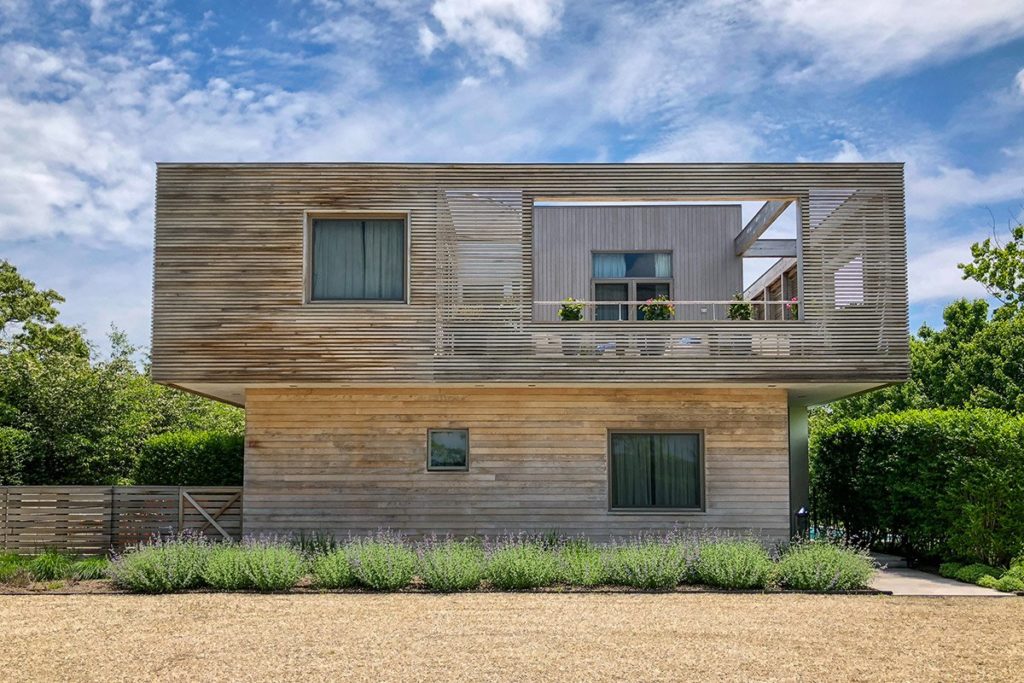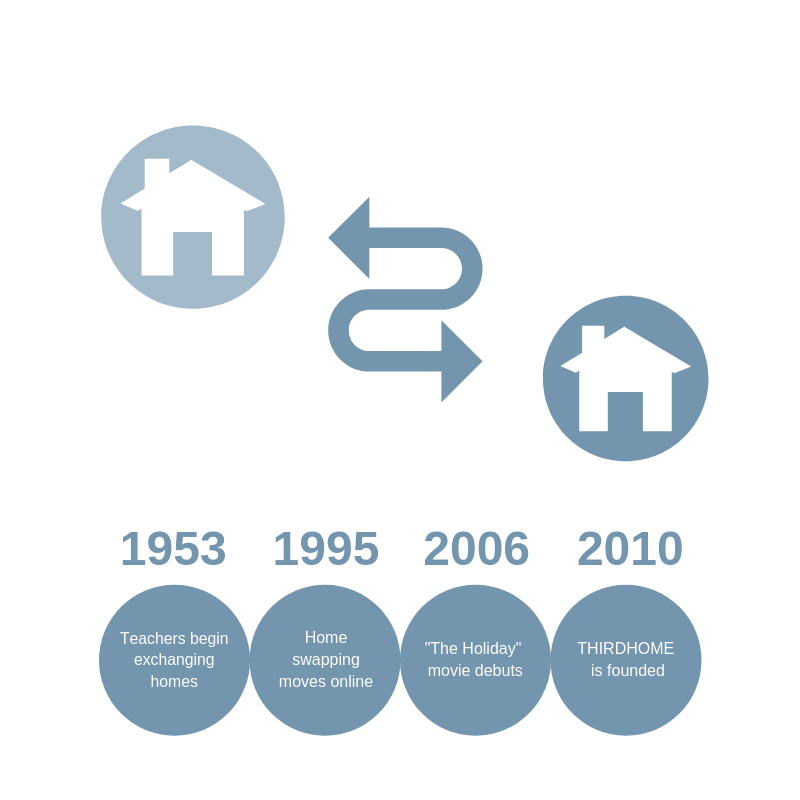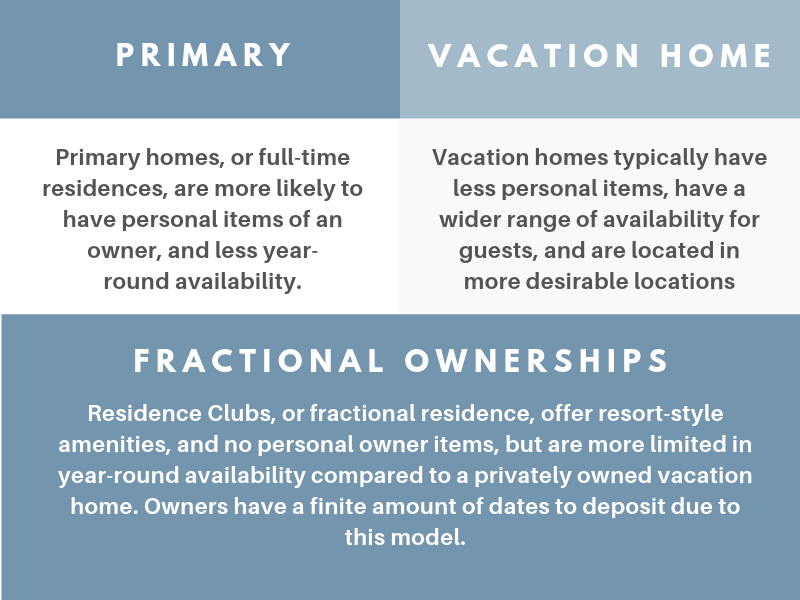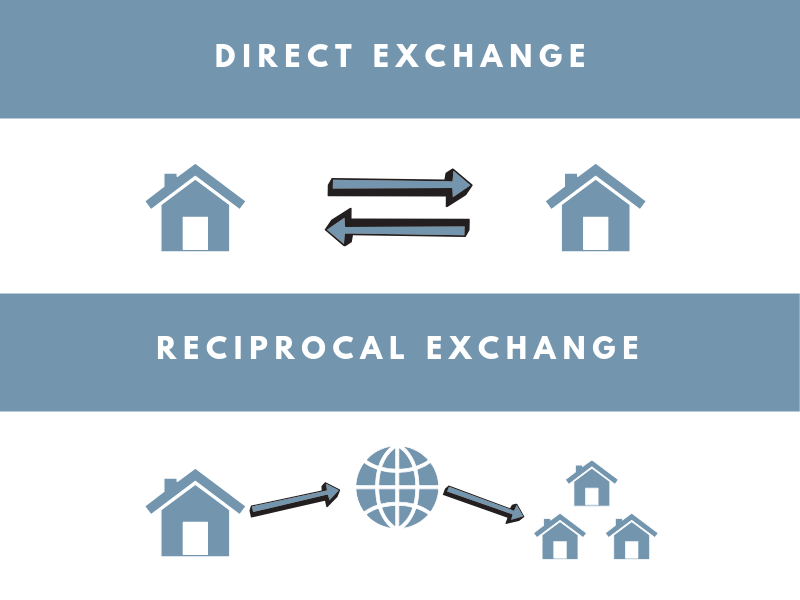
What is Home Exchange? How it Works and What to Know
May 9, 2019 • By Margeaux GerwinEverything you need to know about Home Exchange:
The history, how to get started, and how it works with THIRDHOME.

How Did It Start?
The concept of “home exchange” or “home sharing” came in to play in the 1950s when teachers and professors were looking for a less-costly way to travel during their sabbaticals and holiday months. They would connect with other teachers, in a country or city far away, to discuss swapping residences by mail. As this cost-effective method for finding accommodations became more popular, the idea spread to other communities, with similar vacation schedules, who were willing to exchange their homes. Printed catalogs were distributed to limited destinations and swaps were coordinated via handwritten mail.
As the Internet was evolving, companies began to capitalize on the idea, and home sharing has continued to change the travel industry ever since. The first home exchange site was officially launched in 1995. In the mid-2000s, vacation rental companies like Airbnb and HomeAway made the idea of renting someone else’s private home more palatable, paving the way for vacation home exchange sites to grow. Home exchange became popular when companies, such as HomeLink, began to expand their networks, in the early 1980s, to individuals with occupations that allowed similar travel flexibility.

Benefits of Home Exchange
You may be wondering why you’d consider a home exchange rather than booking a hotel or a vacation rental. Here are a few reasons why:
First, home exchanges can cut down on your accommodation costs quite a bit! Home exchange isn’t exactly free and companies usually require a fee to facilitate the exchange. For example, a luxury vacation rental home in Florida can cost around $5,000 per week during peak season. With THIRDHOME, you could exchange time at your second home for a week in Florida and pay a much less significant, one-time exchange fee (THIRDHOME’s range from $395-$1,295 for an entire week). For this example, that’s upwards of $3,000 saved that could be spent on travel, activities and dining.
The second reason why a home exchange might be appealing is that the experience of staying in another person’s home allows you the opportunity to explore the destination around you as a local. The owner can provide you with restaurant or activity recommendations and help you discover local gems, typically not frequented by tourists.
Another major benefit is having access to resorts and resort-style properties. Some home exchange companies have partnerships with resorts where fractional owners can exchange time they have at their resort residences, rather than fully owning a second home.
Lastly, it can help address buyer’s remorse. By about the 5th year of owning a second home, buyers begin to question if they made a good investment and are ready to start traveling somewhere besides their second home. Being part of an exchange, allows you to parlay that single vacation home into countless others.
Drawbacks of Home Exchange
Make sure to trust the company you choose to exchange with to ease your mind when it comes to how your guests will treat your home. When staying in another person’s home during an exchange, you must be aware of the potential downsides that might not appeal to you. You may encounter personal paraphernalia, family photos, or unfriendly neighbors. When hosting a guest, just like a vacation rental, be aware that there is potential that the guest might cause damage to your home. That’s why it’s essential to join an exchange club that offers a trustworthy and verified membership-base. THIRDHOME addresses this concern by partnering with third party security and verification companies to assist in vetting home owners before they ever even become a member.

Primary Home vs. Vacation Home Exchange vs. Fractional Ownerships
Thanks to movies like The Holiday (2006), home exchanging has continued to grow and evolve over the years. In the movie, two characters swap homes for two weeks. One lives in Surrey, England while the other lives in Los Angeles. This swap, is an example of primary home exchange, and is defined as the usage of an owner’s primary home that they live in full time. A vacation home exchange, on the other hand, involves the exchange of a second home, investment property, or fractional resort property. THIRDHOME is a home exchange that facilitates vacation home exchanges.

Reciprocal vs. Direct Exchange
A direct exchange is where two homeowners coordinate calendars to stay in each other’s properties during the same period. Direct exchanges were popular among academic groups in the 1950s because academia shared similar schedules in which they could travel. Those outside of academia didn’t have the same flexibility in schedule, so the trend didn’t catch on. Eventually, the Internet allowed exchange companies to create marketplaces where direct exchanges weren’t necessary. A reciprocal exchange or indirect exchange, allows more flexibility for an owner by utilizing a credit system. THIRDHOME, for example, uses the reciprocal exchange model by awarding Keys to owners when they deposit stays. This, in turn, allows an owner to use their credits (Keys in our case) during a time that suits them.
How Home Exchange Works With THIRDHOME
THIRDHOME is a private luxury-only home exchange club that provides its members a way to get value out of unused time at their second home. What sets THIRDHOME apart from other home exchange companies is that there is criteria for joining, including home value, location and quality appointments.
Even more importantly, our membership base is made up of second homeowners who share a mutual respect for each other’s homes. They follow the Golden Rule of home exchanging: Respect other member’s homes, as if it were your own. Our peer-to-peer review requirements applies to both the guest and the host experiences, which helps to keep the system in check, further enhancing the trust and safety elements of The Club.
Instead of members having to coordinate exchanges directly with those they’d like to visit, hoping to agree on a mutual date, they deposit available weeks into the collective to earn travel credits called “Keys”. The more often members deposit, the more Keys they earn, allowing them to travel to other properties within The Club. The Key value of a week is based on the value of the property as well as the desirability of the stay. Once you’ve booked another home using your Keys, simply pay the nominal THIRDHOME exchange fee and your reservation is confirmed.
Guest Responsibilities
Being a guest of a THIRDHOME Exchange means treating the home like it is your own. The Club is based on the idea of having like-minded members, so the fears of renting to a complete stranger are no longer relevant. Each home is carefully evaluated and accepted into The Club to make sure they meet the high standards of our members. Before booking your next stay, make sure you read the property page carefully to be aware of specific amenities the home has to offer or any additional fees. If you have any questions for the host, our team is happy to help get those answers for you by contacting the host member on your behalf. After receiving your email confirmation for the reservation, contact the host to be clear on arrival and departure dates before making your flight arrangements. After your stay, write a review on your experience for other members to read. THIRDHOME has more tips on Guest Responsibilities here.
Host Responsibilities
To be a perfect host, you must pay close attention to detail and be prepared to communicate effectively with your guest. We suggest leaving a home manual to give your guest a description of all the amenities your home has to offer. Wifi passwords, television directions, and anything your guest might need to know to help them have a positive experience. A welcome package is also recommended, as your guests are your fellow members within The Club! A bottle of wine, local treats, or even a simple note can give a personal touch for your guest. Having a guest book for members to sign can also help build lasting relationships with other members. Building relationships between members help strengthen the club community. Warmly welcoming a member to your luxury second home can help you have the same experience on your next trip! For more information on Host Responsibility, you can view THIRDHOME‘s suggestions here.
Is Home Exchange For You?
Home exchange isn’t for everyone and there are benefits as well as drawbacks. But there are plenty of companies out there to make sure that you have a positive and beneficial experience when participating in home exchange. At THIRDHOME, we strive to make sure each and every one of our members has a luxury-filled, incredible experience every time they travel with us. Our team is dedicated to helping you see the world from a different perspective while also getting the most value out of your second home.
Interested in learning more about THIRDHOME Exchange?
Click the button below to get in touch with our team and learn more about home exchanging and how it works with THIRDHOME.